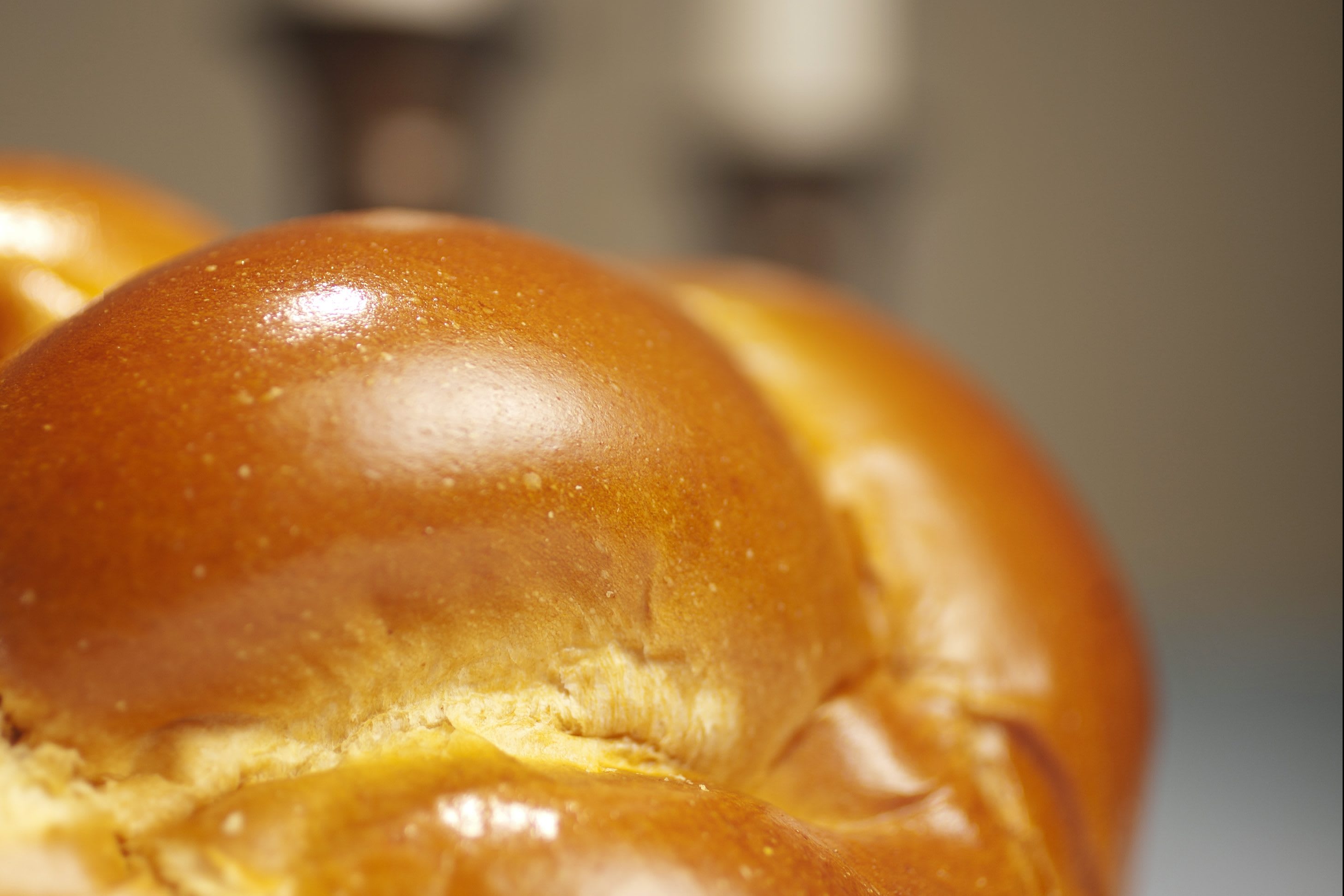We all love Shabbat. The day that the world keeps going, but we Jews step off the hamster wheel and engage in acts that bring a special kedushah, holiness, into our lives.

One of Shabbat’s directives is to eat three festive meals. Aside from these obligatory meals, we know that food itself is a part of Oneg Shabbat (delighting in the day). (See Rambam Hilchot Shabbat 30:10 and Mishna Brura 242:1:6.)
Food and oneg are definitely intertwined, but there is a fine line between enjoying special foods for Shabbat, and even eating a little bit more; and ending up feeling overfull and not well after Shabbat–and, inevitably, putting on weight, which is detrimental to our health.
Lose It! nutritionist Elisheva Rosenberg has spent a lot of time with the rest of the staff coming up with reasonable ways to eat well on Shabbat. You can enjoy your food and still keep your intake under control.
Here are some of her recommendations:
- PLAN, PLAN, PLAN…with YOU in mind. If you’re going to eat healthfully, you need to make sure it’s palatable to you. If you need a bit of exercise to stay on track, schedule a post-lunch walk.
- Don’t buy “Shabbat treats” too early in the week.
- Use low-calorie versions of “must have” dishes.
- Make sure you have plenty of nutritious side dishes and a healthy and lean main course.
- Watch your challah intake and try to use whole grains. Consider making/buying smaller challahs and/or individual rolls.
- Move the challah basket to the middle of the table—out of your reach.
- If you eat out, consider eating lightly beforehand or having healthy food available to eat when you come home.
- Go to a kiddush mentally prepared. Make kiddush at home and eat something light before you go or when you get home. Say “Mazel Tov” and leave if it is too challenging to stay.
- Exercise before and/or after Shabbat to help yourself both physically and mentally. Going for a walk after each meal on Shabbat is very helpful for digestion.
- Emphasize other aspects of Shabbat rather than just the food.
- Think of it this way: Don’t let a beautiful gift like Shabbat ruin your health goals.
In addition to these tips, it is very important not to come into any Shabbat meal too hungry. In the summer on a long Friday, be sure to eat lunch and even have a small snack later in the day; a fruit and handful of nuts might do the trick.
When you wake up Shabbat morning, drink sufficient water before Shul so you can hold out until lunch without getting overly hungry. Many times it is thirst that we mistake for hunger.
In the winter months, there is no need to snack between lunch and shaleshudis (the third meal). When you refrain, you will still be able to eat after Shabbat without using more than your allotted daily calories.
Fill your plate without taking seconds. If you must take something else, take a cooked or raw vegetable or salad. Sitting at the Shabbat table for a long time will eventually lead you to take more food. Don’t rush your meals, but they don’t need to be drawn out either. There is nothing wrong with retiring to the living room afterwards and continuing conversation there without the food in front of you.
Oneg is an important aspect of Shabbat, but overeating is not only unhealthy, it is possibly a prohibited act. Oneg is to enhance our Shabbat, not to make us sick. Enjoy Shabbat, feel well during and after Shabbat, and don’t make Shabbat the day that undoes your health.
Get even more tips on how to have an elegant and delicious Shabbat meal without sacrificing your waistline.
Perhaps surprisingly–and reassuringly–Orthodox Jews are less obese than the rest of the world. Hear Steve Savitsky interview Dr. Mendel Singer about how we can become even healthier.
Alan Freishtat is an A.C.E. CERTIFIED PERSONAL TRAINER and a BEHAVIORAL CHANGE and WELLNESS COACH with over 19 years of professional experience. Alan is the creator and director of the “10 Weeks to Health” program for weight loss. He is available for private coaching sessions, consultations, assessments and personalized workout programs both in his office and by telephone and skype. Alan also lectures and gives seminars and workshops. He can be reached at 02-651-8502 or 050-555-7175, or by email at alan@alanfitness.com Check out the his web site –www.alanfitness.com US Line: 516-568-5027.
The words of this author reflect his/her own opinions and do not necessarily represent the official position of the Orthodox Union.


